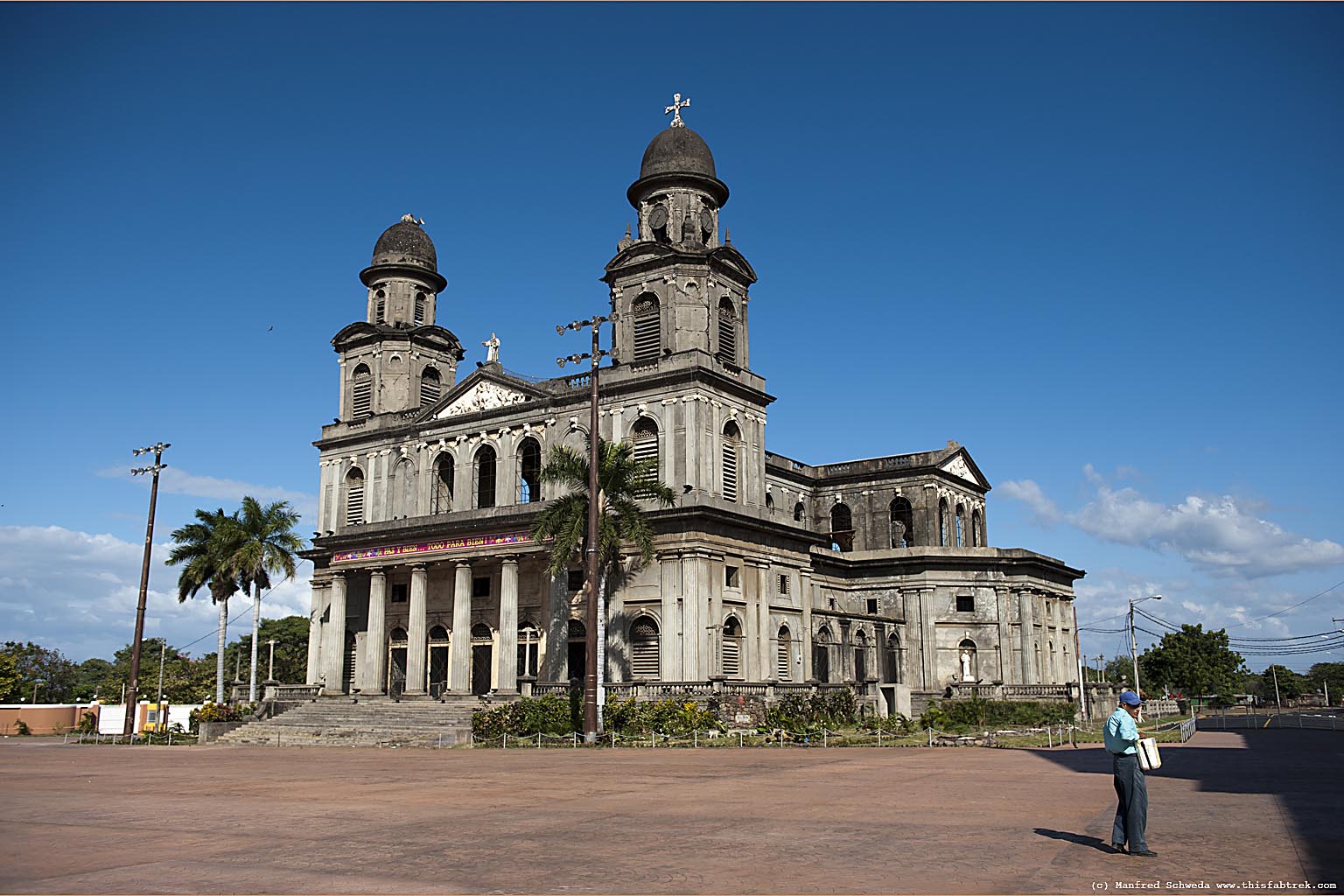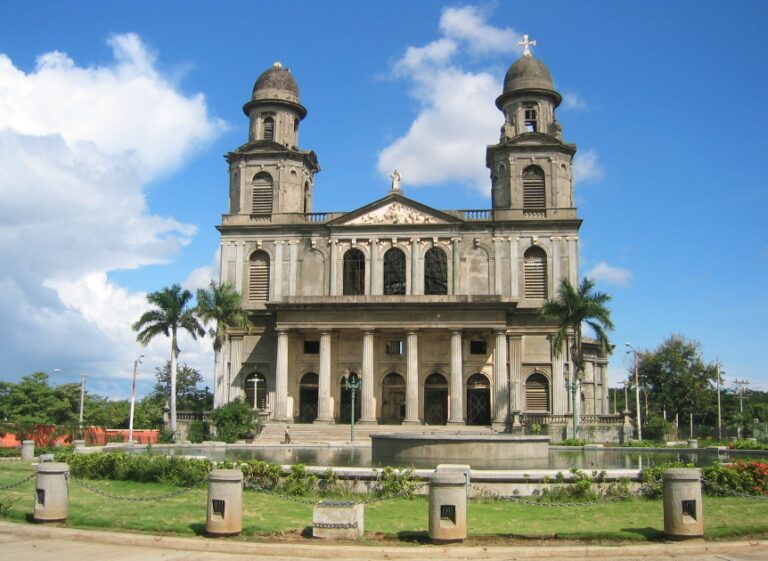Navigating Managua: A Comprehensive Guide To The Nicaraguan Capital
By admin / May 28, 2024 / No Comments / 2025
Navigating Managua: A Comprehensive Guide to the Nicaraguan Capital
Related Articles: Navigating Managua: A Comprehensive Guide to the Nicaraguan Capital
Introduction
In this auspicious occasion, we are delighted to delve into the intriguing topic related to Navigating Managua: A Comprehensive Guide to the Nicaraguan Capital. Let’s weave interesting information and offer fresh perspectives to the readers.
Table of Content
Navigating Managua: A Comprehensive Guide to the Nicaraguan Capital

Managua, the capital of Nicaragua, is a vibrant and dynamic city, a place where history, culture, and modernity intertwine. Understanding its layout is crucial for navigating its streets, exploring its diverse neighborhoods, and appreciating its unique character. This comprehensive guide delves into the intricacies of the Managua map, offering a detailed exploration of its geography, landmarks, and essential information for visitors and residents alike.
A City Shaped by History and Geography:
Managua sits on a vast plain, nestled between the imposing Masaya Volcano and the serene shores of Lake Managua. This geographical context has significantly influenced the city’s development, shaping its urban layout and defining its natural boundaries.
The city’s growth has been marked by both natural and human-made events. Earthquakes, particularly the devastating 1972 tremor, have significantly altered the city’s landscape and led to the relocation of its administrative center. This event, while tragic, has also spurred reconstruction and modernization efforts, resulting in a more organized and resilient city.
Exploring the City’s Core:
The heart of Managua is defined by the Centro de la Ciudad, a compact area encompassing key institutions, historical landmarks, and vibrant markets. This central zone is a testament to the city’s past and present, offering a glimpse into its cultural and economic life.
-
Plaza de la Revolución: This iconic square, formerly known as Plaza de los Tres Poderes, is the city’s most significant public space. It houses the Presidential Palace, the National Assembly, and the Supreme Court, symbolizing the country’s political and judicial power.
-
National Palace: This magnificent Neoclassical building, built in the early 20th century, is a testament to the country’s architectural heritage. Its impressive facade and ornate interiors offer a glimpse into Nicaragua’s colonial past.
-
Metropolitan Cathedral: Situated near the Plaza de la Revolución, this iconic cathedral stands as a symbol of faith and resilience. It was severely damaged by the 1972 earthquake but was later rebuilt, showcasing the city’s determination to rise from adversity.
-
Mercado Oriental: This bustling market, one of the largest in Central America, is a vibrant hub of commerce and culture. It offers a wide range of products, from fresh produce and traditional crafts to electronics and clothing, providing a glimpse into the daily lives of Managua’s inhabitants.
Beyond the Center: Discovering Managua’s Diversity:
Managua extends far beyond its central core, encompassing a diverse array of neighborhoods, each with its own unique character and charm. These areas offer a glimpse into the city’s social fabric, revealing its cultural richness and economic diversity.
-
Las Colinas: This upscale residential district, located on the outskirts of the city, offers a glimpse into Managua’s growing affluence. It features modern housing, shopping malls, and recreational facilities, attracting a diverse population of residents and visitors.
-
Reparto Bolonia: Known for its vibrant nightlife and bustling commercial activity, this neighborhood offers a mix of residential areas, restaurants, bars, and entertainment venues, attracting a young and dynamic population.
-
Tiscapa: Perched on a hill overlooking the city, this historic neighborhood offers stunning views of the surrounding landscape. It houses the iconic Tiscapa Volcano, a natural landmark that offers a panoramic perspective of Managua.
-
Los Robles: This residential area, characterized by its peaceful atmosphere and green spaces, offers a respite from the city’s bustle. It is a popular choice for families seeking a tranquil environment.
Navigating the City: Essential Information:
Understanding the city’s layout and transportation options is crucial for maximizing your exploration of Managua. Here are some essential pointers:
-
Public Transportation: Managua boasts a comprehensive public transportation system, including buses, taxis, and microbuses. While navigating these systems can be challenging for first-time visitors, local residents are generally helpful and willing to offer directions.
-
Taxis: Taxis are readily available throughout the city, offering a convenient and relatively inexpensive way to get around. However, it is advisable to agree on a fare before embarking on a journey to avoid potential disputes.
-
Walking: The city center is relatively compact and walkable, allowing visitors to explore its key landmarks and attractions on foot. However, it is advisable to exercise caution, particularly at night, and be mindful of your surroundings.
-
Maps and Navigation Apps: Utilizing online maps and navigation apps, such as Google Maps, can be invaluable for navigating the city and finding your way around unfamiliar areas.
Managua: A City in Transformation:
Managua is a city in constant transformation, balancing its historical legacy with its aspirations for a modern and prosperous future. While its past has been marked by challenges, the city is embracing its potential, striving to become a hub of economic activity, cultural expression, and sustainable development.
FAQs:
Q: Is Managua a safe city for tourists?
A: Like any major city, Managua has its share of safety concerns. It is advisable to exercise caution, particularly at night, and be aware of your surroundings. Avoid walking alone in unfamiliar areas, and consider using reputable transportation services.
Q: What are the best places to eat in Managua?
A: Managua offers a diverse culinary scene, with options ranging from traditional Nicaraguan cuisine to international fare. Popular dining destinations include the Mercado Oriental, where you can sample local delicacies, and the upscale restaurants in the Las Colinas district.
Q: What are the best places to shop in Managua?
A: Managua offers a variety of shopping experiences, from the bustling Mercado Oriental, where you can find unique souvenirs and local crafts, to modern shopping malls, such as Metrocentro, which offer a range of international brands.
Q: What are the best places to stay in Managua?
A: Managua offers a range of accommodation options, from budget-friendly hostels to luxurious hotels. Popular areas for accommodation include the city center, close to key attractions, and the upscale Las Colinas district.
Tips:
-
Learn a few basic Spanish phrases: While English is spoken in some tourist areas, knowing a few basic Spanish phrases will enhance your interactions with locals and make your travel experience more enjoyable.
-
Bargain for goods: At markets and street vendors, bargaining is expected. Don’t be afraid to negotiate prices to get the best deals.
-
Respect local customs: Nicaragua has a rich cultural heritage, and it is important to respect local customs and traditions. Dress modestly when visiting religious sites, and be mindful of social norms.
-
Stay hydrated: The Nicaraguan climate can be hot and humid, so it is essential to stay hydrated by drinking plenty of water.
Conclusion:
Managua, with its vibrant energy and diverse landscape, offers a unique travel experience. Understanding the city’s layout, its historical context, and its cultural nuances can enhance your exploration and provide a deeper appreciation for this dynamic Nicaraguan capital. As you navigate its streets and encounter its people, you will discover a city that is both resilient and hopeful, a place where the past and the present intertwine to create a vibrant tapestry of life.








Closure
Thus, we hope this article has provided valuable insights into Navigating Managua: A Comprehensive Guide to the Nicaraguan Capital. We appreciate your attention to our article. See you in our next article!